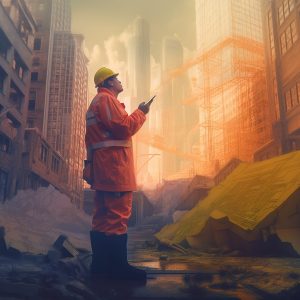As a homeowner or building manager, you want to make sure that the heating, ventilation, and air conditioning (HVAC) system in your property is working efficiently. One way to achieve this is by installing dampers. But what is damper, and why is it important?
In this blog post, we will explain what dampers are, the different types of dampers, how they work, and their benefits. We will also provide tips on how to choose the right damper for your property.
What is Damper?
A damper is a device used to regulate or control the flow of air in an HVAC system. It can be installed in the ductwork of the system to control the amount of air that enters a room or a specific area of the building. By doing so, dampers can help balance the airflow and temperature throughout the building.
There are different types of dampers that can be used depending on the application. The most common types of dampers are manual dampers and automatic dampers.
Manual Dampers
Manual dampers are the simplest type of damper. They are operated by hand and can be adjusted to control the airflow. They are commonly used in residential buildings and smaller commercial properties.
Manual dampers can be installed in the ductwork to control the airflow to specific rooms or areas of the building. They are usually located near the air handler or furnace and can be adjusted to regulate the airflow.
Automatic Dampers
Automatic dampers, also known as motorized dampers, are more sophisticated than manual dampers. They are electronically controlled and can be adjusted automatically based on the temperature, humidity, or air quality in the building.
Automatic dampers can be connected to a thermostat or a building automation system to regulate the airflow. They can also be equipped with sensors to detect the presence of smoke or fire and close automatically to prevent the spread of smoke or flames.
Fire Dampers
Fire dampers are designed to prevent the spread of fire and smoke in a building. They are installed in the ductwork and are connected to a fire alarm system.
In the event of a fire, the fire alarm system will signal the fire damper to close, preventing the spread of smoke and fire through the ductwork. Fire dampers are required by building codes in many jurisdictions, particularly in commercial buildings.
Smoke Dampers
Smoke dampers are similar to fire dampers, but they are designed to prevent the spread of smoke in a building. They are installed in the ductwork and can be connected to a smoke detector.
When the smoke detector detects smoke, the smoke damper will close, preventing the smoke from spreading through the ductwork. Smoke dampers are also required by building codes in many jurisdictions, particularly in commercial buildings.
How Do Dampers Work?
Dampers work by regulating the airflow in an HVAC system. They can be installed in the ductwork to control the amount of air that enters a room or a specific area of the building.
Manual dampers are operated by hand and can be adjusted to control the airflow. Automatic dampers are electronically controlled and can be adjusted automatically based on the temperature, humidity, or air quality in the building.
Fire dampers and smoke dampers are designed to prevent the spread of fire and smoke in a building. They are installed in the ductwork and can be connected to a fire alarm system or a smoke detector.
When the fire alarm system or smoke detector detects smoke or fire, the damper will close, preventing the spread of smoke and fire through the ductwork.
Why Are Dampers Important
Dampers are important for several reasons, including:
Energy Efficiency
By regulating the airflow, dampers can help improve the energy efficiency of an HVAC system. They can prevent heated or cooled air from being wasted by directing it to the areas of the building where it is needed most.
This can help reduce the energy consumption of the HVAC system, leading to lower energy bills and a smaller carbon footprint.
Temperature Control
Dampers can also help improve temperature control throughout the building. By regulating the airflow, dampers can help ensure that the temperature is consistent throughout the building.
This can help prevent hot and cold spots and improve the comfort of the building occupants.
Improved Air Quality
Dampers can also help improve the air quality in the building by directing fresh air to the areas of the building where it is needed most.
This can help reduce the concentration of pollutants and allergens in the air, leading to a healthier indoor environment.
How to Choose the Right Damper
When choosing a damper, there are several factors to consider, including:
Building Type
The type of building you have will affect the type of damper you need. For example, a residential building may only require manual dampers, while a commercial building may require automatic dampers, fire dampers, or smoke dampers.
Location
The location of the damper is also important. Dampers should be installed in areas where they can be easily accessed for maintenance and repair.
Type of HVAC System
The type of HVAC system you have will also affect the type of damper you need. For example, a forced-air system may require different dampers than a hydronic system.
Budget
Your budget will also be a consideration when choosing a damper. Manual dampers are generally less expensive than automatic dampers, fire dampers, or smoke dampers.
Importance of Professional Installation
It is important to have your dampers installed by a professional HVAC technician. A professional can ensure that the dampers are installed correctly and that they are functioning properly.
Conclusion
In conclusion, dampers are an important part of an HVAC system. They can help improve energy efficiency, temperature control, and indoor air quality. There are several types of dampers available, including manual dampers, automatic dampers, fire dampers, and smoke dampers.
When choosing a damper, it is important to consider factors such as building type, location, type of HVAC system, and budget. It is also important to have your dampers installed by a professional HVAC technician to ensure that they are installed correctly and functioning properly.
By installing dampers in your building, you can improve the efficiency and effectiveness of your HVAC system, leading to a more comfortable and healthy indoor environment.
Check out our other articles for more…









